A paradigm shift is well underway among company-builders all over the world. For a business to reach its long-term potential, its purpose is just as important as the profits. Nick talks about what makes this philosophy so challenging and how you can be successful. Expect to be challenged to consider some of the paths you can take to create an organization you, your team, and your customers are proud to be part of, where your people can do their best work.
Slides
Find out more about BoS
Get details about our next conference, subscribe to our newsletter, and watch more of the great BoS Talks you hear so much about.
Transcript
Nick Francis: Nice to see everybody. My name is Nick Francis. I am the co founder and CEO of company called Help Scout. We make customer support software for small and mid sized businesses. Our software powers about 12,000 companies all over the world to talk with their customers. But I’m not going to talk about the platform today. I figure I’m in a room full of amazing entrepreneurs and company builders. I want to make the most of that opportunity, and I want to talk about company building. It’s actually my favorite topic; for as long as I can remember, I wanted to build a great company. There’s something about creating something from nothing and then building a team to run after it together, and then, if you’re lucky. You get to watch it grow and succeed over a long period of time. I’m guessing that many of you are actually sitting here because you suffer from a similar affliction. Yeah.
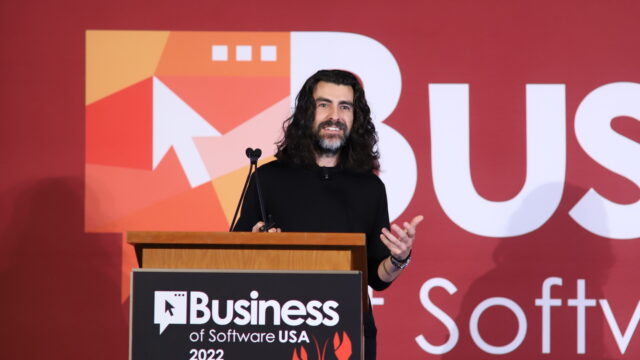
Well, in my case, I’ve been building Help Scout with my teammates for about 12 years now, and it’s been the absolute journey of a lifetime, and in that time, we’ve had a lot of space to think about how to measure the success of a business. There’s a lot of different ways, but particularly in tech, I found that it’s rather difficult, like not a lot of the success measures really resonated with us for whatever reason, whether it’s a fundraise or big valuation related to that fundraise or some sort of exit, maybe even selling your company or IPO, all of those are really positive outcomes, don’t get me wrong, but it left a little bit short for me, at least, because aren’t we building companies for a little bit something more? Shouldn’t we be asking some other questions about how to measure the success of our business, like, are we doing right by our employees? Are we building something sustainable that our customers can count on for the long term. And are we actually building something where we can give back? Like, is the world going to be a better place as a result of our company having existed?
The Evolution of Business Success Measures
Well, I’ve spent many years leaning into some of these questions at Help Scout and trying to build a high growth business all at the same time. And what we’ve adopted is a broader definition of success, one in which profit and purpose actually work in harmony together. So we think about: not only are we trying to delight customers and earn more share in the market and build a really successful business, but we also want to leverage that commercial success to have a positive impact, to give back to our community, maybe improve society in some way, or even have an impact on the environment. Our belief is that when companies figure out how to get this right, they’re actually capable of much more significant outcomes in the long run. And I think most of us would agree that if companies all operated this way, then we’d be way better off, wouldn’t we? But for some reason, it’s just difficult, right? Because we’re operating in a system that has an outdated, if not oversimplified, definition of what success means.
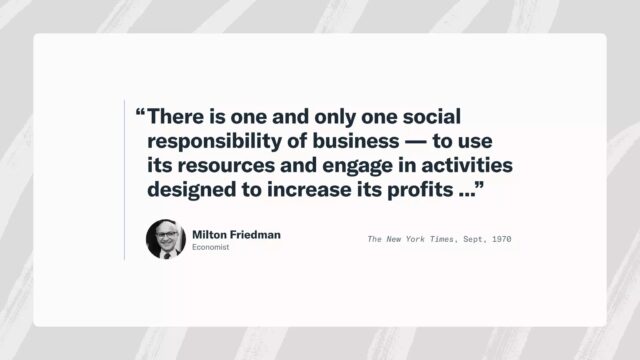
So let’s talk a little bit about how we got here, although capitalism can be an extremely positive way to drive economic output and innovation, we actually took a wrong turn about 50 years ago. So I want to tell you a little bit about how that happened. It was in the early 70s, a famous economist named Milton Friedman came up with this idea called shareholder primacy. So maybe you’ve heard the phrase maximize shareholder value. Well, this came from Milton Friedman. Believe it or not, it hasn’t existed forever. Only in the last 50 years have the gears of capitalism really started to turn and shift to the idea of shareholder primacy, the way he said, it is this, there’s only one social responsibility of business to use its resources to engage in activities designed to increase its profits, and that actually had some pretty harmful long term effects, many of which are painfully clear for us to see today.
In fact, it’s gotten so bad that a lot of people have lost faith in capitalism as a system that serves them and all people, rather than just a few people at the top in 2014 the Harvard Institute of Politics did some research on this topic, and they found that only 19% of Americans between the ages of 19 and 29 even called themselves capitalists, and less than half said that they supported capitalism. The good news is that today, most people agree that Friedman was wrong, that shareholder primacy actually has a number of flaws that limit the long term success of a business, everyone from Fortune 500 CEOs to entrepreneurs like you and me, we agree on this, and there’s actually a new approach that’s way better. It’s called stakeholder governance, and that’s a fancy way of saying that value creation in a business is about shareholders, but it’s also about some other parties as well. It’s about doing right by your customers, your community, your employees, your suppliers and the environment, just to name a few. So it’s about being able to make decisions through the lens of all stakeholders instead of shareholders.
Challenges and Opportunities in Implementing Stakeholder Governances
So everybody agrees, awesome. Well, we’re still operating businesses in this old system, right? If you ask anybody that’s running a public company today, you’ll find that they’re really only measured on two or three things: profit, growth rate and maybe their ability to predict the future and meet analyst expectations. It’s a tough job, and I believe we can do better. So how do we catalyze change? How do we actually get the gears of capitalism shifting in the direction of stakeholder governance moving forward? Well, the best way to effectuate change in the system, at least in my experience, is to operate businesses this way and prove that it works.
So that’s very much been our mission at Help Scout over the last 12 years, is to prove that this way of operating works so that we can inspire the next generation of entrepreneurs to build companies this way. Imagine if every company in this room was actually building a company according to these principles. Then that work would compound over time, and we’d start to change the system. See, adopting this new way of thinking is not about just changing a law. This is a culture thing. It’s going to take a lot of ongoing progress, and we’re just going to have to identify this as a better way of building a business, which I absolutely believe it is.
So I want to spend the rest of my talk just talking a little bit about what we’ve learned in these 12 years at Help Scout and some of the things that we’ve adopted along the way.
Becoming a Certified B Corporation
First thing, we became a certified B Corporation back in 2019, this is something we’re very proud of. There’s actually two phases of becoming a certified B Corporation. The first is actually just changing your corporate entity status from a C Corp or whatever entity you have today, over to a PBC, a public benefit corporation. So that’s a pretty common entity type in the US and Beyond Today, the folks at B Lab, who do the certification, have done a lot of work to lobby for this, this entity. And the basic difference is pretty simple between a C Corp and a PBC, they bake in stakeholder governance into the bylaws, so that as a fiduciary, as a board member, as people that are making decisions on behalf of the business, you’re compelled to make those decisions in the sense of all stakeholders and what’s good for them, Not only the shareholder. And then the second piece is actually becoming B Corp certified. So think of this as like an organic or fair trade certification, except for a business you’re held to higher standards of accountability. This is how the B Corp people say it certified. B Corporations are businesses that meet the highest standards of verified social environmental performance, public transparency and legal accountability to balance profit and purpose. That’s right, I didn’t invent that phrase. They did. So that leads me to my first prompt for you today. What’s being done to protect and promote your company’s purpose? Mission and Values are one thing. In but if you’re holding your Are you really holding yourselves accountable to living them? Do you have structures in place inside of your business that makes sure you’re walking the walk?
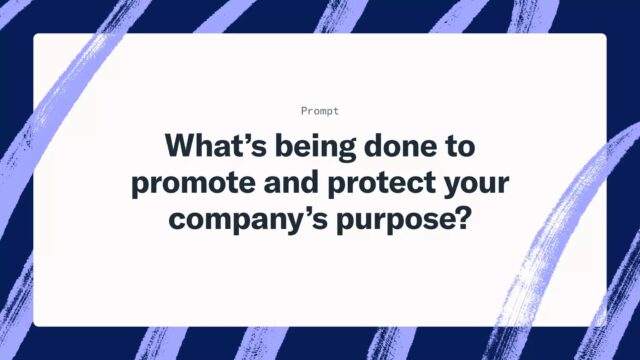
Help Scout for Good Program
Next, I want to talk about a program called Help Scout for Good. We actually had this challenge in our business. We want to dedicate dollars to corporate philanthropy, and we want to be generous with our time and our resources, but we’re a SaaS business. We’re a software business. We redeploy every dime that we make back into growth of the business. So we’ve been able to do philanthropy on some level, but we had this challenge where we wanted to be able to give back to the community more today, and so we created this program called Help Scout for good. What it does is we give away our product at a discounted rate or for free, and we do so for nonprofits, B Corps and other organizations that are moving forward, three social issues that we care about as a company that we’re vocal about, as a company that’s human rights, diversity in tech and the environment, and so across all of those organizations, once we started this program and started getting it underway, believe it or not, as of this month, we’re going to cross a million dollars in promotional value and discounts that have been given To those sorts of organizations.
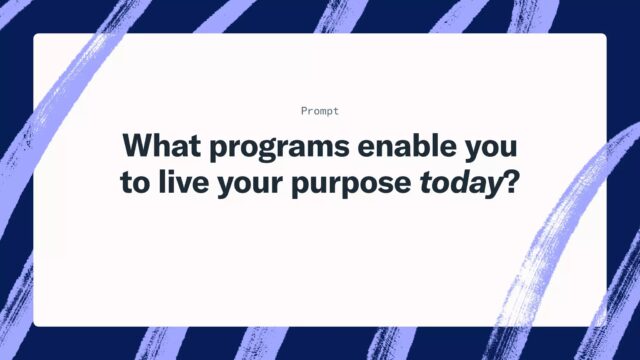
So we feel like that’s a really great start, and that leads me to my next prompt: What programs enable you to live your purpose today? Most of us don’t have millions of dollars to put towards corporate philanthropy yet, but maybe there are programs that you can implement in your business today that make a real, tangible difference on the communities that you’re trying to serve. OK, I want to talk about a couple of long term programs that you can start to think about.
Pledge 1% and LTSE
The first is called pledge 1% Who’s heard of pledge 1% before? Oh, sweet. I get to tell a bunch of you about a really cool thing. So companies like Salesforce, Twilio Atlassian, Yelp, DocuSign and now Help Scout, as of last year, are all members of pledge 1% so the ask is pretty simple. They say they want you to pledge 1% of your equity, your time, your product and or your profits, just one of those things. If necessary, you can do multiple and typically it’s easiest or best, it’s suggested for you to give away 1% of your equity. And these are big companies, by the way, that I just mentioned that have done this. So what you can do is you don’t have to decide on the organizations that you want to support yet. You don’t have to do any of that work yet, but they offer sort of the legal backing for you to issue a warrant and give away 1% of the company, so that if and when your company does become incredibly successful, then the mechanism is already in place for you to give back to the community in the appropriate way. The earlier you can do this, by the way, the better, the more shareholders you have, the harder this becomes. It’s also something that you can do personally. So you can make a pledge as a founder or as an operator in a business. My wife and I have pledged 10% of our equity back to the community. You can pledge more than 1% by the way.
Who’s heard of the LTSE? Okay, LTSE stands for Long Term Stock Exchange, and this was a program. This is an organization that was founded by Eric Ries of the lean startup movement years ago, really smart guy. And it is an operating approved by the SEC public market that exists in our system today. As a matter of fact, the first two companies joined the ltse just last year, Asana and Twilio, so they’re both dual listed on both the ltse and the NASDAQ, and it’s an incredibly clever solution to some of the shareholder primacy issues that I talked about right, much like a B Corp certification, it adds a layer of accountability on top of all the standards and practices that you have to abide by in order to operate as a public company. So things like dei programming, compensation, employee policies that additional layer of accountability exist. They also have some really clever mechanisms. We don’t have to get into the details today, but some very clever mechanisms through which companies are empowered to think in a long term way. So things like voting rights are somewhat subject to basically, if you’ve held the stock for longer, your voting rights carry more weight. If you’ve not held the stock for as long, then your voting rights are diminished. So that’s a very cool program.
Strategic Ways to Create Profit and Purpose Harmony
So next prompt, what programs are enabling you to live your purpose tomorrow? What mechanisms can you actually put in place today when it’s easier, so that when you’re successful down the line, you can give back, you can double down on your purpose. Now let’s talk about a couple of strategic ways that at Help Scout, we’ve tried to create profit and purpose harmony. And one of the issues I thought would be kind of interesting to talk about is fundraising. So you would think of fundraising as potentially a sticky topic if you’re trying to balance these things. So Help Scout. In our history, we’ve raised about $28 million and although it’s a small number compared to our competitors, it’s still an incredibly powerful tool for us to invest in the growth of the business, because we want to, we have big aspirations. We want to build a market leading business, no doubt about it. And so that’s been a helpful tool for us. And in my experience, we’ve been able to carry on these critical principles. And that’s one reason, by the way, you want to become a PBC, because at the board level, at the fiduciary level, you’re compelled to think in a stakeholder governance type of way.
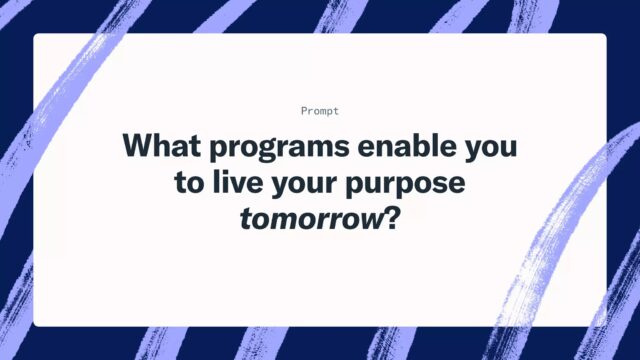
So if I could offer any advice on folks that do choose to fundraise in order to grow their business and reinvest in their company, there’s a couple pieces of advice I would give. One: raise at an honest valuation, like a really, truly honest, objective valuation. Over the last couple of years, we’ve seen a lot of companies raising at 20, 30, and even 50x revenue. And while that can be really cool in the moment when the economic climate shifts, it’s going to put unnatural growth pressure, unnatural pressure on the business to fulfill short term obligations, and so when everybody else was raising a 30x and high fiving last year, we raised it a much smaller valuation. But now that the economic climate has shifted, we’re on our toes and our stakeholders at the board level, our investors are aligned with us.
Yeah, the second thing to be mindful of is how you choose your partners when it comes to fundraising. There’s a lot of investors, at least in my experience, out there, that are happy to invest in companies that are trying to create profit and purpose harmony, a lot of them. So I choose my partners when I’m fundraising based on who they’re going to be and how they’re going to show up in the boardroom, more so than the number on the term sheet, and that’s made all the difference for us.
Next I want to talk about a little bit of a soapbox. Just going to warn you, equal pay for remote workers. And this can be a complex topic, but the premise is this that we want to compensate our employees based on the business value they create. So code that’s written in Ukraine is just as valuable to us as code that’s written here in Boston, and therefore we pay the employee in Ukraine the same amount of money that we pay the person in Boston. And this exists for one basic reason. We build software folks, if the code runs, it doesn’t matter where it was created, right? And so we’ve we started, when we started the business, we were compensating people based on cost of living and all these geographical factors, and I felt really uncomfortable being the arbiter of living costs. I don’t know about you, it just doesn’t feel like it fits the job description. It got really complex for us to work through those things, and not to mention complex but inequitable. And so we talked with a bunch of other companies, we talked with a bunch of other people inside and out of the organization, and we found that the simplest, most equitable way to compensate folks was to do it the same, all based on the intrinsic value of the work that’s being created.
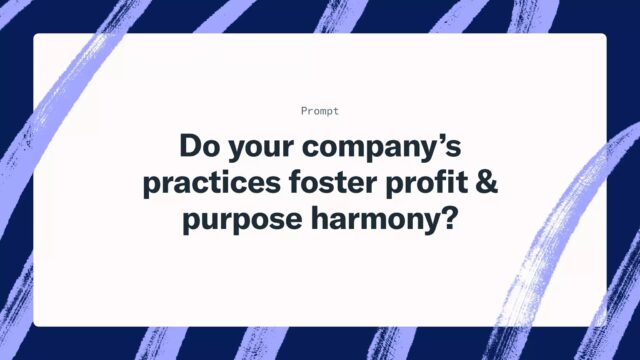
And I bring these things up because it’s important that you create practices that foster profit and purpose harmony inside of your business, even if it flies in the face of industry norms. Are you willing to make some of those decisions? And if you do, you can really set your business up for success. So if you hear anything from me today, I want it to be this too often, other folks in the ecosystem are playing profit and purpose as though it’s a zero sum game, and that couldn’t be further from the truth. As a matter of fact, profit and purpose are actually meant to work in harmony, right? So like many societal issues today, we’re just we have a lot of people that are actually saying this is an either or when it’s actually a both and right, profit and purpose are meant to work together. They feed off of each other. They’re meant to work in harmony. Then and only then, when you’ve got these things working in harmony, can you maximize the potential of your business, and that’s what makes it so powerful.
The next thing I want to talk about is a very cool story. Maybe some of you know who this guy is, Ivan Chouinard, founder of Patagonia, just a few weeks ago, showed us exactly what this looks like. He gave away the entire company to a trust that’s empowered their only mandate is to invest their capital into fighting climate change. This is a wonderful example. I don’t remember when Patagonia was founded. I probably should have learned as part of this talk, but maybe somewhere, sometime in the 80s, it’s been around for a long time. With greater financial success and longevity come greater opportunities to double and triple and quadruple down on your purpose. Yvonne is really modeling the sort of generational change that can be catalyzed by living these principles day after day. And guess what? Patio Patagonia is going to sell a lot more stuff as a result of it. So I hope this talk provided some food for thought. This is the work that inspires everything that I do at Health scout and I thank you for letting me share a bit of our story today.
Q&A
Mark Littlewood: Great. Thank you. We got some time for questions. So usual drill.
Nick Francis: Oh, 1970 Geez. So actually, at the exact same time, Milton Friedman went on his soapbox. Funny.
Audience member: Yes, ready to go. Hey, thanks, Nick. Great talk on the topic of money and compensation. I wanted to zero in and ask for some additional thoughts. So I have a team, hybrid company, half us, half Vietnam. We, of course, have a no sweatshop conditions type policy. Nobody works night shifts, right? We try to really build the same culture there as here. Compensation wise, full disclosure we pay about our formula is a, it’s like a 6x or 7x multiplier of the median income in that society, which actually is a much higher multiplier than here in the US. Do you really mean, like, exactly the same pay completely regardless of location, or can you say more about that?
Nick Francis: In our case, yes, it is exactly the same. However, we can do like, a whole talk on this one, because there are various complexities and exceptions to the rule. And in Help Scout’s case, we’re just competing for the best freaking talent we can find anywhere, right? And so we’re willing to pay for that talent based on the value we believe that they can create in the business. It’s very possible for your business to have a certain economic model where it just makes sense, where you actually don’t want to attract the best possible talent, you just want to be able to check some boxes and you want some supportive roles in the company. And so I think that that’s one of those sorts of exceptions where it would make complete sense. I don’t think it’s immoral by any stretch or unethical by any stretch to end up paying folks different in that regard. But we actually just hire people regardless of as long as there’s the right time zone overlap. We just don’t care where you are. If you’ve got a hub in Vietnam, that’s going to be a different situation.
Mark Littlewood: So just to add a question to that, if you’re employing somebody in an economy that’s suddenly become an emerging market economy, and the value of their currency is just, yeah, vaporized. Are you paying me in dollars now, or are you paying me in pounds?
Nick Francis: That gets pretty tough, right? So at least once a year, in most cases, twice a year, we’ll just adjust the currency exchange rate and try to come to an agreement. But we’ve already agreed who’s going to absorb the difference there, right? Because we’ve had employees that actually got a $10,000 pay cut as a result of currency fluctuations, right? So we do our best to take on most of the burden there, with regard to currency exchange, but it’s a very complex thing, and there’s just no solve that checks all the boxes for sure.
Mark Littlewood: Ray’s tried to be sneaky, because he was sitting over there, and now he’s moved over here.
Audience member: Thank you for a wonderful talk. A lot of your descriptions so far have been premised on the idea of slicing an ever growing pie, being, you know, being very successful in everything, being better than the quarter came before it’s nice outside. Side. But I think we all see the gathering clouds, and soon we’ll be talking about not so much slicing a growing pie, but the potential for cutting payroll. How have you given thought to this? What best practices would be for mixing the economic requirements as well as the purpose when it comes time to making some of these harder decisions that could be coming for hopefully not too many of us, but probably more than zero.
Nick Francis: The thesis that I try to build this whole approach on is the fact that it’s not actually a pie. And if it were a pie, the pie is actually growing in size alongside the growth, growth of your business by way of investing in your purpose. Because when you’re investing in your purpose you’re serving. Like for us, we serve SMBs. We want to invest. We want to make our purpose part of investing back in the SMB community, right? And so our thesis is it’s, it’s not actually a pie with a finite size. It’s a pie that continues to grow as a result of doubling down on your purpose, because that has, that holds extraordinary brand value over time as well. So difficult issue, but we’re just gonna, we’re just gonna do it like it’s just something. It’s a hill we’ve decided to die on, if necessary.
Audience member: Great talk. Can you talk about, I know you didn’t start as a B Corp. Can you talk about that transition? Did everyone get on board? Were there people who didn’t get on board? Like, how did that process go? Because it’s pretty tough, right
Nick Francis: The process, I read the B LAB handbook. Let’s see, probably in 2014 we started the company in 2011. So honestly, like in 2011 they weren’t ready. They were certifying companies, but they weren’t quite ready. And the model was heavily dependent on like Patagonia and Ben and Jerry’s, I think were the two first B Corps. So they were built on businesses that were radically different from ours, operating remotely, not really having physical goods. And so it took a while for that program to evolve. But ultimately we did in 2019 do it. We had major institutional investors at that time. We had more than 20 shareholders. And so it just took time. I wouldn’t say it was difficult, because ultimately whiskey is the same way. This is a manifestation of how we operate the business anyways, and the values that we use to run the business.
So tactically, it didn’t change a whole lot of things, but it just allowed us to bake this into the bylaws and the legal structure of the company. So now it actually requires a super majority at the board level and at the shareholder level if you want to take away the B Corp certification, which is really important. So it takes time, no doubt, it took us about a year to go through the process, but a lot of it just kind of waiting around to get through the queue. And we just got recertified, it still took like, three or four months to make it through their queue. So it’s more waiting around and like checking boxes, but even, like the big assessment you have to do for certification, is super healthy for your business to go through, because we actually created Help Scout for good and a few other programs as a result of that assessment, so we can get a better score.
Mark Littlewood: Great. One last question. Then, Amir.
Nick Francis: Amir, all my friends are asking questions. Thank you
Mark Littlewood: Trying to trip you up.
Nick Francis: Not yet.
Audience member: Hello, hello, yeah, okay, inspiring talk. Nick, I have actually a question: it is why you’re focusing on profit? Because if we take, like, the PI abstraction, it’s basically the purpose is maybe building a bigger pie, and not like, you know, at some point, like taking the pie and giving it away, or like, eating it. So I would just, like, love that, because in our business, we have actually never really focused on profit, yeah, so I would just love to get that understanding.
Nick Francis: This gets down to more of like a philosophy, but I’m actually a big believer in capitalism. I’m a big believer in building a business that can be financially successful and being in control of my own financial destiny. I’m sure many of you feel the same way. And if it came down to a nonprofit model where I actually have to raise money to fund the business all the time that doesn’t seem to align with the sort of innovative things that we could do as a for profit business. And so I think that these are best when they’re working in harmony, meaning you’re actually out there to make to build an extraordinary financial success that benefits you, your team and your employees to a vast extent, but at the same time, you can leverage a lot of the success to double down on your purpose, whatever you decide that that needs to be. So there’s just something magical about getting people to pay you for the thing that you make and to be able to generate profit from it that to me, feels. A much stronger business model and a much better way to create innovative things. Cool. Thank you, right.
Mark Littlewood: Nick, thank you so much.
Want more of these insightful talks?
At BoS we run events and publish highly-valued content for anyone building, running, or scaling a SaaS or software business.
Sign up for a weekly dose of latest actionable and useful content.
Unsubscribe any time. We will never sell your email address. It is yours.
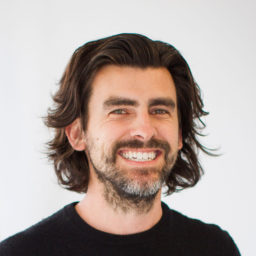
Nick Francis
CEO & Founder, Help Scout
Nick has been starting businesses since he was 15. He sees entrepreneurship as an opportunity to get outside his comfort zone daily, learn at a high velocity, have a big impact, and have a lot of fun.
He loves building products that work for small businesses, but is just as passionate about remote work, DEI, and refactoring capitalism. He believes a company can only fulfill its market potential by balancing profit and purpose – leaving customers, employees, shareholders, their community, and the environment better off.
He lives in Boulder, CO with wife Anastasia and dog Elvis.
Next Events


6-8 October | Raleigh, NC
Grab Early Bird Tickets

13-14 April | Cambridge, UK
Grab Early Bird Tickets
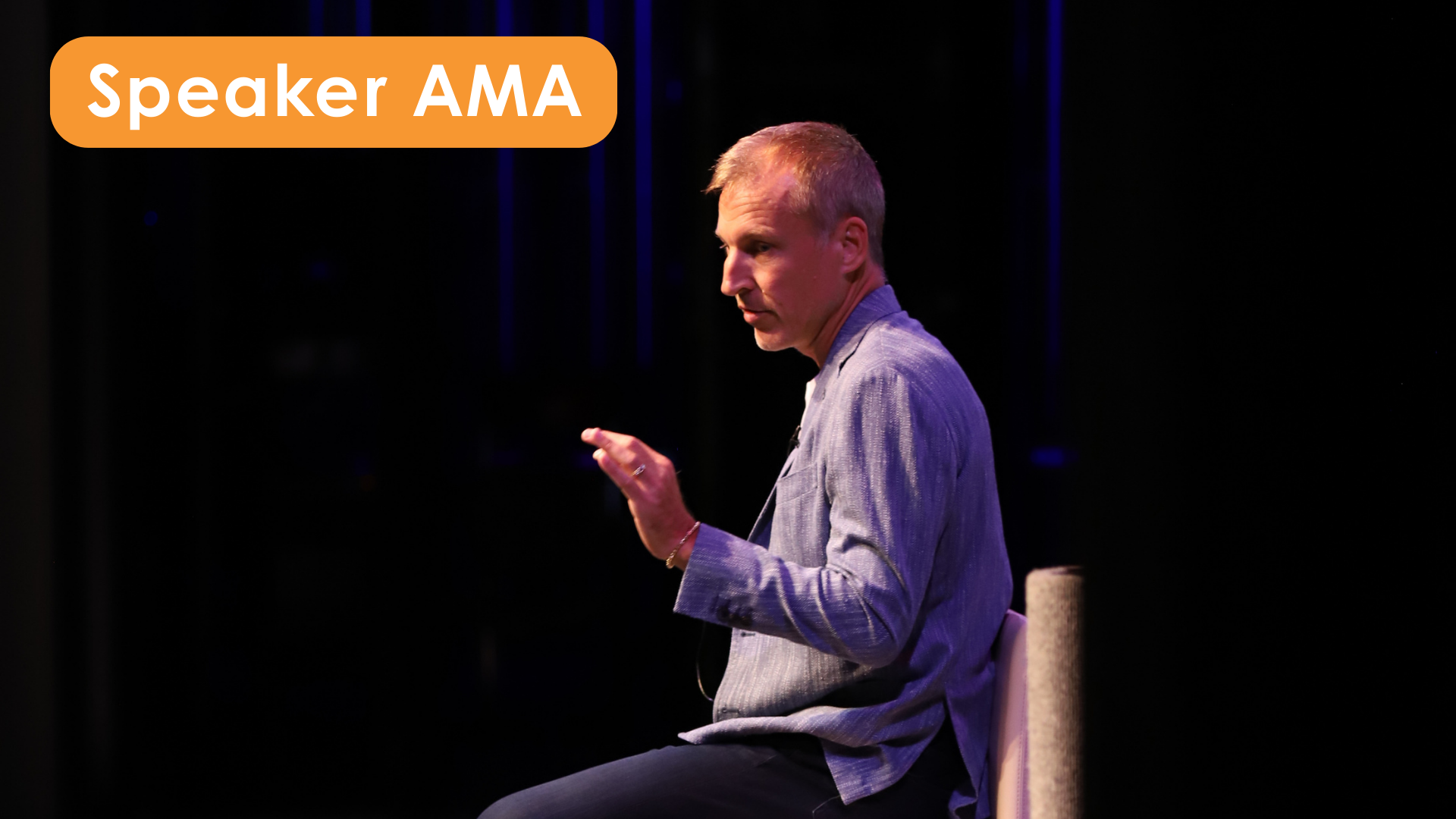



Want more of these insightful talks?
At BoS we run events and publish highly-valued content for anyone building, running, or scaling a SaaS or software business.
Sign up for a weekly dose of latest actionable and useful content.
Unsubscribe any time. We will never sell your email address. It is yours.